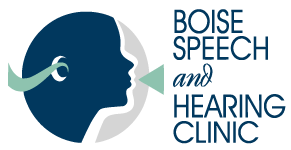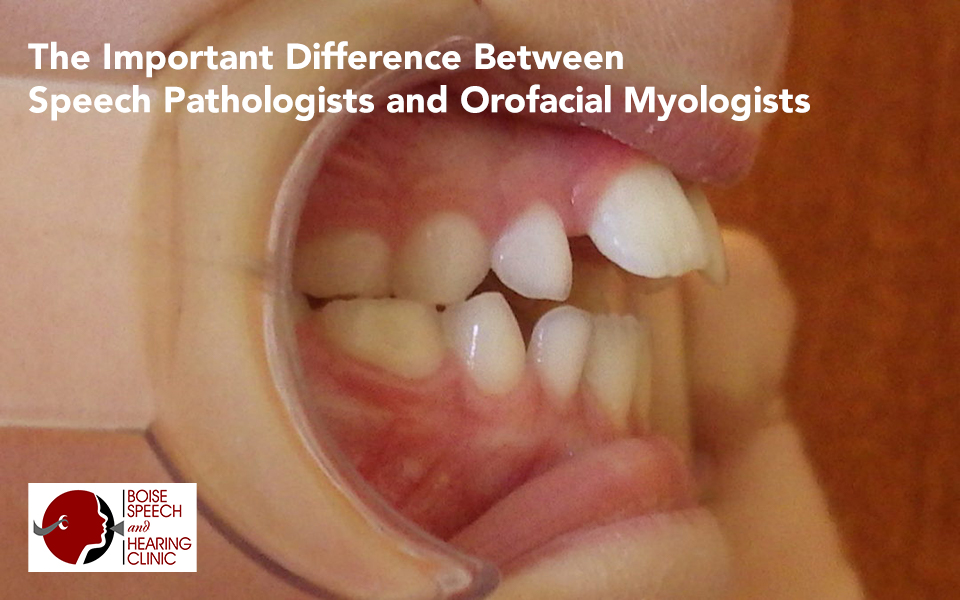Speech and language development is a mixture of physically training the mouth and tongue to produce sounds and the mental ability to know what sounds go where to create words and how to combine words into sentences.
Diagnosing a speech and language problem requires looking at both the physical and mental development and what may be wrong. After diagnosing the problem, either a Speech Language Pathologist, an Orofacial Myologist, or both are needed to correct the problem. Understanding the difference between the two therapists can make a huge difference in the journey to overcome a speech or language disorder.
What Does A Speech Language Pathologist Do?
A Speech Language Pathologist (SLP) is what people typically think of when thinking of speech and language therapy. They assist people overcome different speech and language challenges. This may include problems like:
-
Stuttering
-
Lisps
-
Apraxia
-
Autism Spectrum Disorders
-
Language based learning disabilities.
SLPs understand how to help both children and adults with each unique speech issue through a variety of therapy techniques. These issues include basic physical, mental, cognitive, comprehension and emotional barriers to normal speech.
How Is An Orofacial Myologist Different?
While SLPs focus on speech and language issues from a variety of sources, Orofacial Myologists focus on oral physical problems, especially involving the tongue, that prevent normal speech development. Orofacial Myology has been defined as “the study and treatment of oral and facial muscles as they relate to speech, dentition, chewing/bolus collection, swallowing, and overall mental and physical health” (S.R Holtzman).
With Orofacial Myofunctional disorders, the tongue lacks the coordination to motorically move to produce specific sounds, such as s, z, r, sh ,ch, use correct mouth resting posture with the tongue tip up behind the teeth, or produce a correct swallowing pattern.
A trained Orofacial Myologist knows how to properly evaluate Orofacial Myofunctional Disorders and how to remediate the problem. The most common of orofacial issues is a “tongue thrust” swallow. The tongue thrust swallow is normal in infants, but as children develop, they should outgrow it and learn to swallow normally. Sometimes though, this isn’t the case, and this incorrect swallowing technique leads to a lack of coordination of oral muscles resulting in dental malocclusions, such as, an overbite, overjet or open bite. Common problems usually involve being unable to pronounce certain sounds because their mouth and tongue lack the proper coordination and training.
Why Is This Important?
While most SLP’s have an understanding of orofacial issues, they typically aren’t properly trained to fix orofacial myofunctional disorders. This lack of understanding can lead to misdiagnosing the problem, lengthening the duration of therapy, and the therapy ending with poor results.
Becoming a certified Orofacial Myologist isn’t easy because treating orofacial issues requires large amounts of knowledge and training. Here are the steps someone has to take to become a fully certified Orofacial Myologist.
-
Become a member of the International Association of Orofacial Myology
-
Complete 28 hours of an approved course on Orofacial Myology
-
Complete an extensive examination.
-
Be observed for 6 hours of therapy and evaluation by a Certified Orofacial Myologist
-
Be reviewed by the board to determine if all criteria has been met.
If someone is diagnosed with an orofacial myofunctional disorder, like tongue thrust, an Orofacial Myologist needs to be involved. They can work hand in hand with a SLP, or you can find a therapist trained in both disciplines. At Boise Speech and Hearing Clinic, we have Speech Language Pathologists who are also trained Orofacial Myologists, ensuring that we can help correct both speech language and orofacial problems.
We also offer complimentary consultations, where we can discuss with you any speech and language concerns you may have in regards to yourself or a child and help diagnose the root of the problem. You can click here to schedule your complimentary screener, or contact us at any time to set up a consultation or full evaluation.


